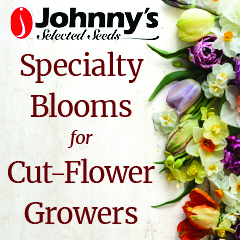//Sourcing//
Heinen’s serves up a “seasonal tour” of Ohio-grown flowers
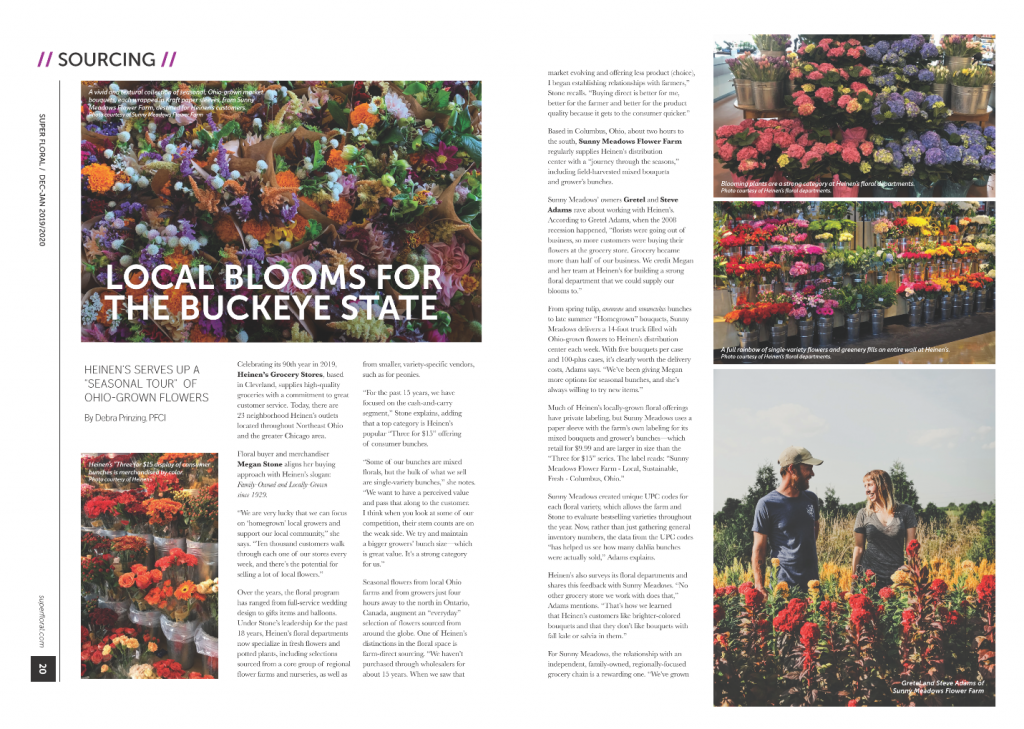 Note: this article appears in the December 2019-January 2020 issue of SuperFloral
Note: this article appears in the December 2019-January 2020 issue of SuperFloral
By Debra Prinzing, PFCI
Celebrating its ninetieth year in 2019, Heinen’s Grocery Stores, based in Cleveland, supplies high-quality groceries with a commitment to great customer service. Today, there are twenty-three neighborhood Heinen’s outlets located throughout Northeast Ohio and the greater Chicago area.
Floral buyer and merchandiser Megan Stone aligns her buying approach with Heinen’s slogan: Family-Owned and Locally-Grown since 1929.
“We are very lucky that we can focus on ‘homegrown’ local growers and support our local community,” she says. “Ten thousand customers walk through each one of our stores every week and there’s the potential for selling a lot of local flowers.”
Over the years, the floral program has ranged from full-service wedding design to gifts items and balloons. Under Stone’s leadership for the past 18 years, Heinen’s floral departments now specialize in fresh flowers and potted plants, including selections sourced from a core group of regional flower farms and nurseries, as well as from smaller, variety-specific vendors, such as for peonies.
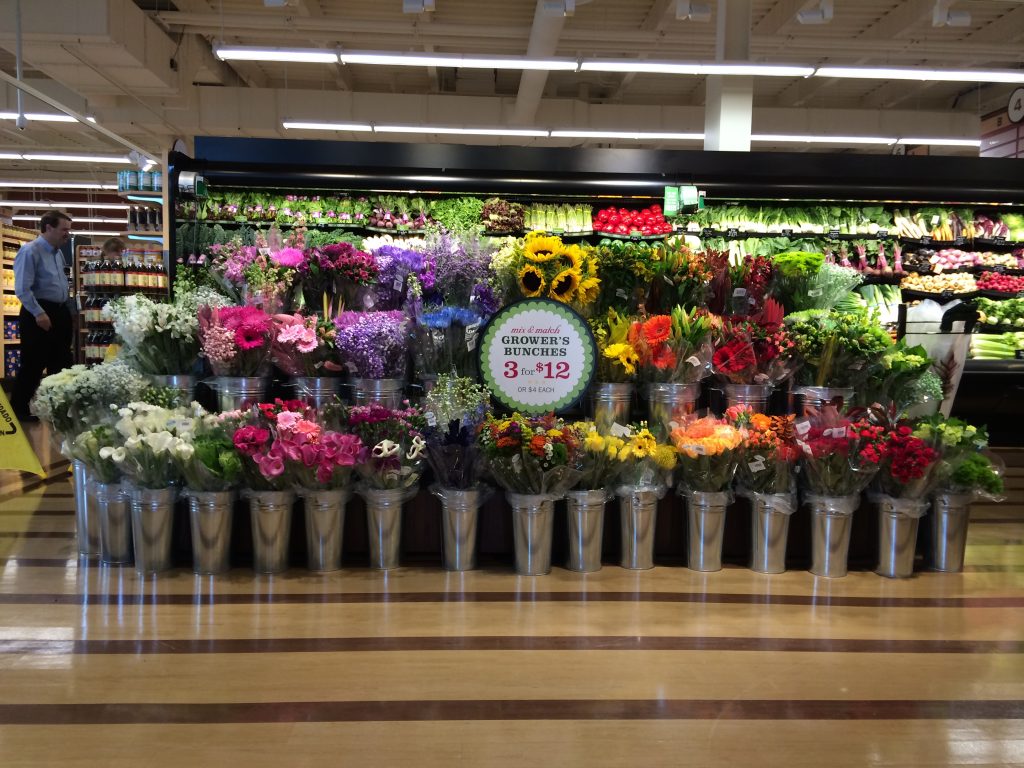
“For the past 15 years, we have focused on the cash-and-carry segment,” Stone explains. A top category: Heinen’s popular “Three for $15” offering of consumer bunches.
“Some of our bunches are mixed florals, but the bulk of what we sell are single-variety bunches,” she says. “We want to have a perceived value and pass that along to the customer. I think when you look at some of our competition, their stem counts are on the weak side. We try and maintain a bigger growers’ bunch size — which is great value. It’s a strong category for us.”
Seasonal flowers from local Ohio farms and from growers just four hours away in Ontario, Canada, augment an “everyday” selection of flowers sourced from around the globe. One of Heinen’s distinctions in the floral space is farm-direct sourcing. “We haven’t purchased through wholesalers for about fifteen years. When we saw that market evolving and offering less product (choice), I began establishing relationships with farmers,” Stone says. “Buying direct is better for me, better for the farmer and better for the product quality because it gets to the consumer quicker.”
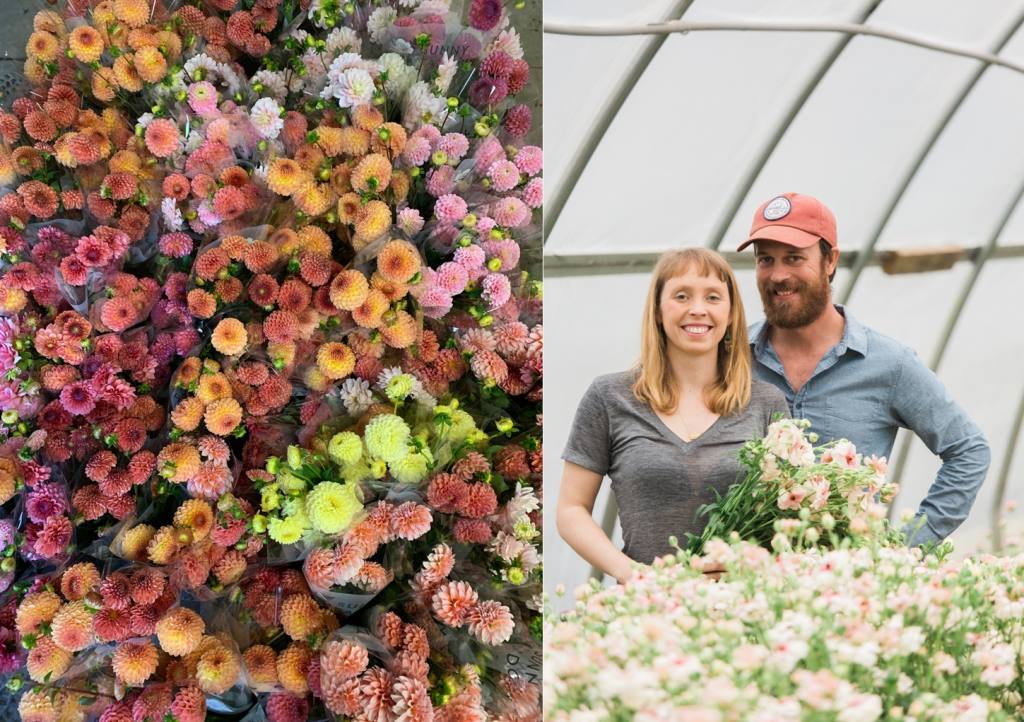
Based in Columbus, Ohio, about two hours to the south, Sunny Meadows Flowers Farm regularly supplies Heinen’s distribution center with a “journey through the seasons,” including field-harvested mixed bouquets and grower’s bunches.
Sunny Meadows’ owners Gretel and Steve Adams rave about working with Heinen’s. According to Gretel Adams, when the 2008 recession happened, “florists were going out of business, so customers began buying their flowers at the grocery store. Grocery became more than half of our business and we started selling to Heinen’s when they didn’t have a local supplier yet.” From spring tulip, anemone and ranunculus bunches to late summer “Homegrown” bouquets, Sunny Meadows delivers a full 14-foot truck filled with Ohio-grown flowers to Heinen’s distribution center each week. With five bouquets per case and 100-plus cases, it’s clearly worth the delivery costs, Adams says. “We’ve been giving Megan more options for seasonal bunches, and she’s always willing to try new items.”
Much of Heinen’s locally-grown floral offerings have private labeling, but Sunny Meadows uses a paper sleeve with the farm’s own labeling for its mixed bouquets and grower’s bunches, which retail for $9.99 and are larger in size than the “Three for $15” series. The label reads: “Sunny Meadows Flower Farm – Local, Sustainable, Fresh – Columbus, Ohio.”
Sunny Meadows created unique UPC codes for each floral variety, which allows the farmers and Stone to evaluate bestselling varieties throughout the year. Now, rather than just gathering general inventory numbers, data from the UPC codes “has helped us see how many dahlia bunches were actually sold,” Adams explains.
Heinen’s also surveys its floral departments and shares this feedback with Sunny Meadows. “No other grocery store we work with does that,” Adams says. “That’s how we learned that Heinen’s customers like brighter-colored bouquets and that they don’t like bouquets with fall kale or salvia in them.”
For Sunny Meadows, the relationship with an independent, family-owned, regionally-focused grocery chain is a rewarding one. “We’ve grown together,” Adams says of the farm’s role as a vendor to Heinen’s. “Megan is pretty hands-on with her program and she knows flowers; she knows what sells. As we learn what Meagan needs, we can better serve her stores and her customers with Ohio-grown flowers.”
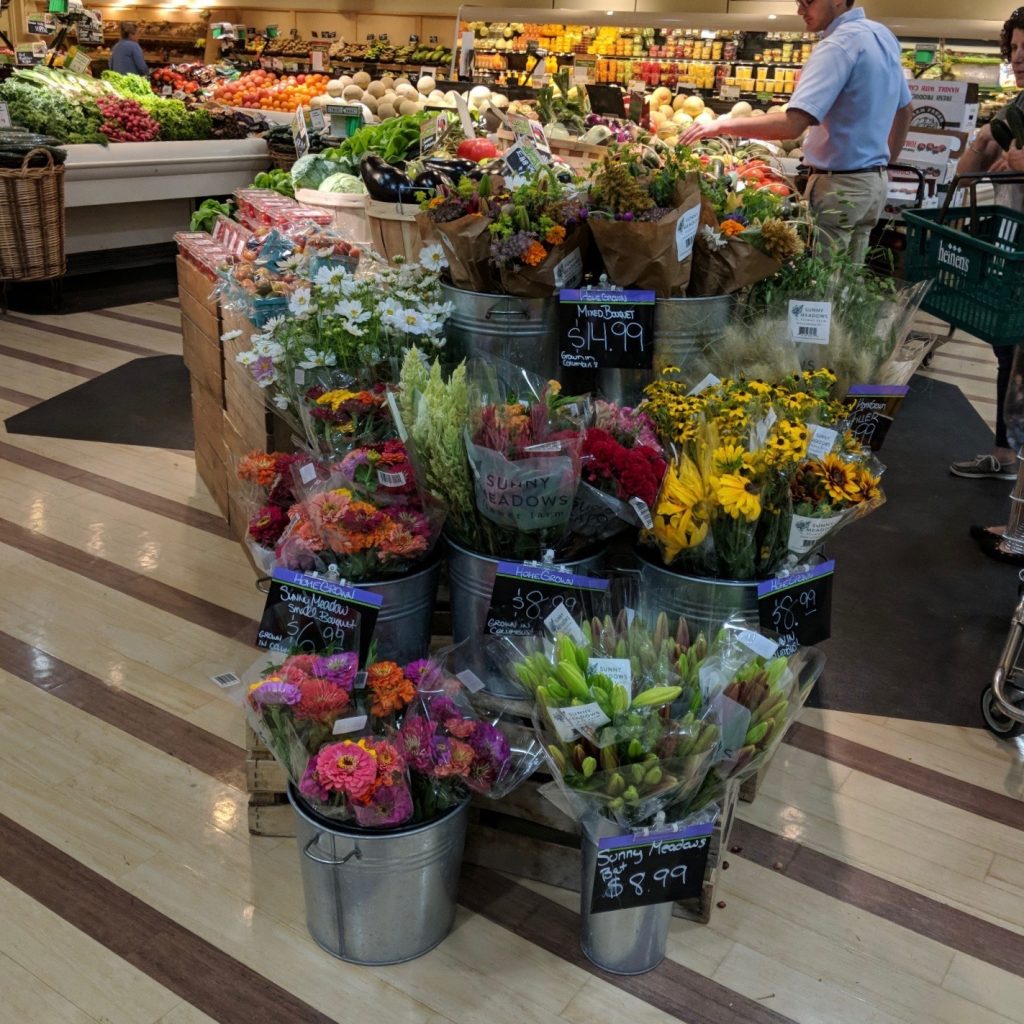
Farm-to-Floral Department
Here are some of the ways Heinen’s maximizes its relationships with local flower farms:
- Highlight local growers through in-store signage, on Heinen’s web site and in blog posts
- Take floral managers to tour flower farms
- Be accessible to new growers by helping them navigate grocery, distribution and inventory operations
- “We can help smaller farms grow their business,” Stone explains.”Even if you have a smaller volume, we’re still open to whatever you’re growing. We can deliver to just one or two of our stores; we don’t have to supply all the stores with the same product selection.”
Details:
Heinen’s, heinens.com/In-Store/Departments/Floral, @heinens
Sunny Meadows Flower Farm, shop.sunnymeadowsflowerfarm.com, @sunnymeadowsflowerfarm

